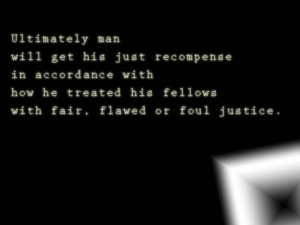Gospel: Mt 6:7-15
Jesus said to his disciples, “When you pray, do not use a lot of words, as the pagans do; for they believe that, the more they say, the more chance they have of being heard. Do not be like them. Your Father knows what you need, even before you ask him.
This, then, is how you should pray:
Our Father in heaven, holy be your name,
your kingdom come,
your will, be done on earth, as in heaven.
Give us today, our daily bread.
Forgive us our debts,
as we forgive those who are in debt to us.
Do not bring us to the test,
but deliver us from the evil one.
“If you forgive others their wrongdoings, your Father in heaven will also forgive yours. If you do not forgive others, then your Father will not forgive you.“REFLECTION:
Forgive Your Enemy
There is a very beautiful story about the “Our Father.“ During the communist reign in Russia under Stalin, a communist Russian-Jew, Dr. Boris Kornfeld, a surgeon, became one of the many political prisoners in Siberia. While in the prison camp a Christian prisoner taught him “The Our Father.“ Boris was not a Christian; but he found the prayer attractive and consoling, so he begun to pray it.
One day, a guard featured in a knifing incident. An artery had been cut. Dr. Kornfeld was ordered to save the guard. While suturing the blood vessel, he thought of tying the thread in such a way that it would reopen shortly after surgery. The guard would die quickly and no one would suspect anything. The process of taking this particular form of vengeance gave rein to the burning hatred Dr. Kornfeld had for the guard and all like him. How he despised his persecutors! An opportunity for him to get even with the inhuman prison guards had presented itself to him. But just as he was about to do the evil he had contemplated, he remembered the “Our Father“ he had been praying. He paused. He prayed. He resisted the temptation. As he completed the surgery he prayed: “Forgive us our trespasses as we forgive those who trespass against us, and lead us not into temptation.“
Dr. Kornfeld would later die in prison, a victim of the atrocities of the Gulag prison camp, but not before converting to Christianity and telling his story to his last patient in the Gulag, Alexander Solzhenitsyn, author of “One day in the Life of Ivan Denisovich.“
2014 Copyright. Claretian Communications Foundation Inc








